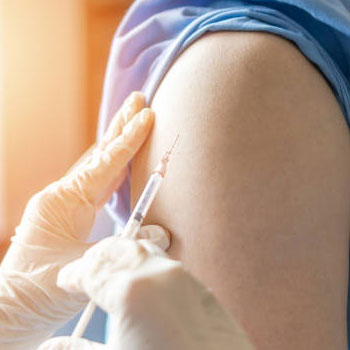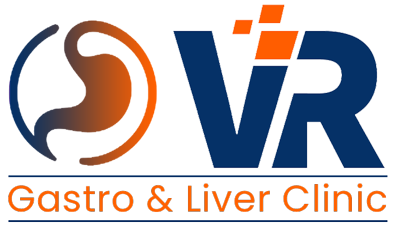What is hepatology?
Hepatology is a branch of medicine that focuses on the study, diagnosis, and treatment of liver diseases and disorders. It encompasses a wide range of conditions affecting the liver, gallbladder, biliary tree, and pancreas. The liver, being one of the largest and most vital organs in the human body, plays a crucial role in various physiological processes, including metabolism, digestion, detoxification, and nutrient storage. Understanding hepatology is essential for maintaining liver health and preventing serious complications associated with liver diseases. In this comprehensive guide, we delve into the intricacies of hepatology, exploring its significance, common liver disorders, diagnostic approaches, and treatment modalities.
What is the importance of liver health?
The liver is a multifunctional organ responsible for performing numerous vital functions essential for maintaining overall health and well-being. Some of the key functions of the liver include:
- Metabolism: The liver metabolizes carbohydrates, fats, and proteins, converting them into energy or storing them for future use.
- Detoxification: It filters toxins, drugs, and other harmful substances from the bloodstream, detoxifying the body and preventing the accumulation of harmful compounds
- Synthesis: The liver synthesizes important proteins such as albumin, clotting factors, and bile acids necessary for various physiological processes.
- Storage: It stores essential nutrients, vitamins, and minerals, releasing them into the bloodstream as needed to maintain optimal bodily functions

What are some common liver disorders?
Despite its remarkable regenerative capacity, the liver is susceptible to various diseases and disorders that can impair its function and lead to serious complications. Some of the most prevalent liver disorders include:
Hepatitis
Hepatitis B treatment in Vijayawada refers to inflammation of the liver and can be caused by viral infections (hepatitis A, B, C,etc.), alcohol abuse, autoimmune diseases, or certain medications and toxins.
Cirrhosis
Cirrhosis of the liver is a progressive condition characterized by the formation of scar tissue in the liver, leading to impaired liver function. It is commonly caused by chronic alcohol abuse, viral hepatitis, or non-alcoholic fatty liver disease (NAFLD).
Non-alcoholic fatty liver disease(NAFLD)
NAFLD is a spectrum of liver conditions ranging from simple fatty liver to non-alcoholic steatohepatitis (NASH), which can progress to cirrhosis and liver failure. It is often associated with obesity, insulin resistance, and metabolic syndrome.
Liver cancer
Liver cancer treatment in Vijayawada, or hepatocellular carcinoma (HCC), is a malignancy that originates in the liver cells. It can arise as a primary cancer or metastasize from other organs, posing a significant threat to liver health.
Biliary tract disorders
Disorders affecting the bile ducts and gallbladder, such as cholecystitis, cholelithiasis (gallstones), and primary sclerosing cholangitis (PSC), can impair bile flow and disrupt liver function.
Diagnostic approaches in hepatology
Diagnosing liver diseases requires a comprehensive evaluation involving medical history assessment, physical examination, laboratory tests, imaging studies, and liver biopsy. Common diagnostic tests and procedures used in hepatology include:
- Liver function tests(LFTs): LFTs measure the levels of enzymes, proteins, and other substances indicative of liver function and damage, helping identify liver disorders and monitor disease progression.
- Imaging studies: Imaging techniques such as ultrasound, computed tomography (CT), magnetic resonance imaging (MRI), and transient elastography (FibroScan) are used to visualize the liver, gallbladder, and bile ducts, detecting abnormalities, tumors, or structural changes
- Biopsy: Liver biopsy involves the extraction of a small tissue sample from the liver for microscopic examination, providing valuable insights into the underlying pathology, staging of liver diseases, and treatment planning.
- Serologic tests: Serologic tests are performed to detect specific antibodies, antigens, or viral markers associated with hepatitis viruses (e.g., hepatitis B surface antigen, hepatitis C antibodies) and autoimmune liver diseases treatment in Vijayawada
What are the treatment modalities in hepatology?
The management of liver diseases depends on the underlying cause, severity of the condition, and presence of complications. Treatment modalities in hepatology aim to:
- Control symptoms: Symptomatic relief is provided through medications targeting symptoms such as pain, itching, fatigue, and jaundice associated with liver diseases.
- Manage underlying conditions: Addressing underlying conditions such as viral hepatitis, autoimmune disorders, metabolic syndrome, or alcohol dependence is crucial for preventing disease progression and improving liver function.
- Promote liver regeneration: Interventions aimed at promoting liver regeneration and reducing fibrosis include lifestyle modifications (diet, exercise), pharmacotherapy (antioxidants, anti-fibrotic agents), and regenerative medicine approaches.
- Liver transplantation: In cases of end-stage liver disease or liver failure, liver transplantation surgery doctors in Vijayawada may be considered as a life-saving option, providing patients with a new lease on life and improved long-term outcomes.
Hepatology plays a pivotal role in safeguarding liver health and combating liver diseases through early detection, accurate diagnosis, and timely intervention. By understanding the significance of liver function, recognizing common liver disorders, employing diagnostic tools effectively, and adopting appropriate treatment strategies, healthcare professionals can enhance patient outcomes and promote liver wellness. Maintaining a healthy lifestyle, avoiding risk factors, and seeking regular medical care are essential components of liver disease prevention and management. Together, let us strive to preserve liver health and improve the quality of life for individuals worldwide.
Consult Dr. Veera Abhinav Chinta who is the best hepatologist for liver disease treatment in vijayawada.
